Search
Remove Ads
Advertisement
Summary 
Loading AI-generated summary based on World History Encyclopedia articles ...
Search Results

Definition
Horae
The Horae (Horai, sing. Hora) were the personification and goddesses of the seasons and the hours and, later on, were regarded as goddesses of order and justice in Greek mythology. They were the daughters of Zeus and the Titaness Themis and...
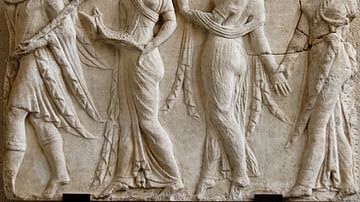
Image
Dionysos & the Horae
A marble relief depicting the god Dionysos leading the Horae, personifications of the seasons in Greek mythology. 1st century CE Roman copy of an earlier Greek original. (Louvre Museum, Paris)

Definition
The Graces
The Graces (also Charites, sing. Charis) were goddesses from Greek mythology who personified charm, grace, and beauty. Hesiod describes three Graces, and this is their most common grouping in literature and art, but their number varies depending...
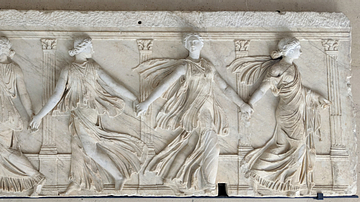
Image
Borghese Dancers
Marble relief depicting the Hours, the goddesses of time in Greek Mythology, accompanied by the Graces. The work is typical of Neo-Attic workshops which produced Greek-style sculptures for Roman clients. The relief is named after the Villa...
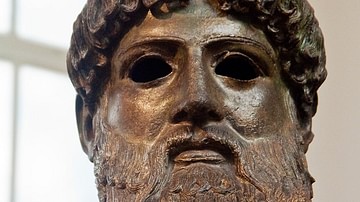
Definition
Zeus
Zeus was the king of the 12 Olympian gods and the supreme god in Greek religion. Zeus is often referred to as the Father, as the god of thunder, and the 'cloud-gatherer'. Zeus controlled the weather and offered signs and omens. Zeus generally...

Definition
Fates
The Fates (also known as the Moirai in Greek mythology) are three sister goddesses responsible for assigning destinies to mortals at their birth, a human's lifespan, and the timing of their death. The golden thread they spin represents each...
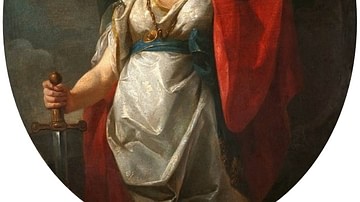
Definition
Themis
Themis is the personification and goddess of divine law, will, and justice in Greek mythology. She was held in high esteem by the Olympians, often sitting by Zeus' throne and giving him wise counsel. Themis held the place of Oracle at Delphi...
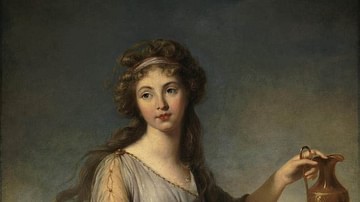
Definition
Hebe
Hebe (meaning "youth" or "bloom of youth") is the goddess and personification of eternal youth in Greek mythology. She is the daughter of Zeus and Hera and the wife of the Greek hero Hercules. Hebe serves as the cupbearer for the gods and...
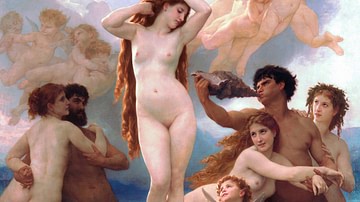
Definition
Greek Mythology
Greek mythology was used as a means to explain the environment in which humankind lived, the natural phenomena they witnessed and the passing of time through the days, months, and seasons. Greek myths were also intricately connected to religion...
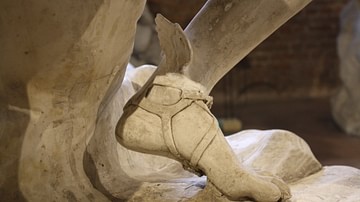
Definition
Hermes - The Messenger of the Olympian Gods
Hermes was the ancient Greek god of trade, wealth, luck, fertility, animal husbandry, sleep, language, thieves, and travel. One of the cleverest and most mischievous of the 12 Olympian gods, Hermes was their herald and messenger. In that...